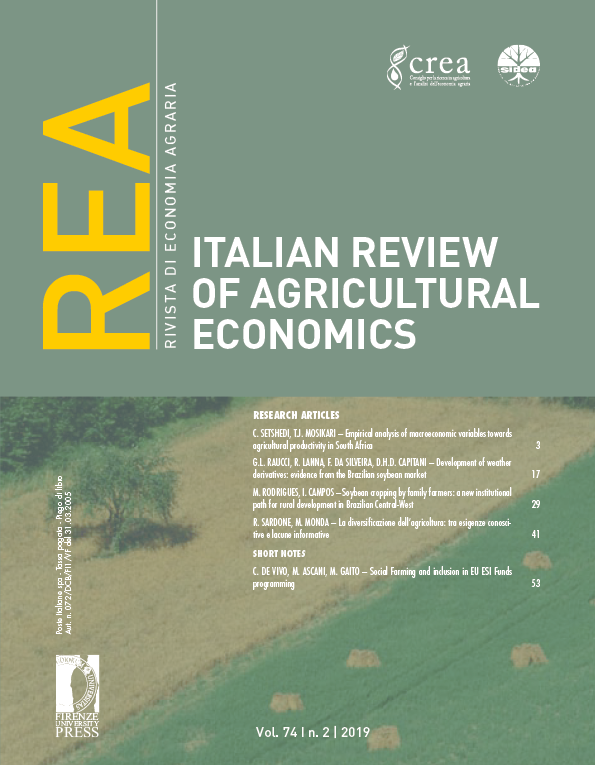Linking food security, climate change adaptation and mitigation: the case of sustainable land management in Malawi
Published 2016-08-06
Keywords
- Climate-smart agriculture,
- farming practices,
- on-farm costs
How to Cite
Abstract
Climate-smart agriculture (CSA) aims at enhancing the capacity of farming systems to sustainably support food security in the context of climatic changes (CC). Questions arise about the profitability of alternative farming options and their cost-effectiveness in mitigating CC. A large dataset has been built through household surveys, key informant interviews and focus group discussions conducted in different agro ecological zones of Malawi. Farmers adopt a wide combination of sustainable land management (SLM) practices, earning often higher yields, profits and returns to labor than under conventional farming. Differences are more significant in dry areas indicating potential for CC adaptation. However, this may come at excessive costs in terms of capital and labor. Negative marginal abatement costs for most SLM options show synergies between increased farm incomes and CC mitigation. Cost- effectiveness of agriculture management practices is proposed as policy decision criterion to prioritize CSA interventions on the basis of economic efficiency in greenhouse gases abatement.


